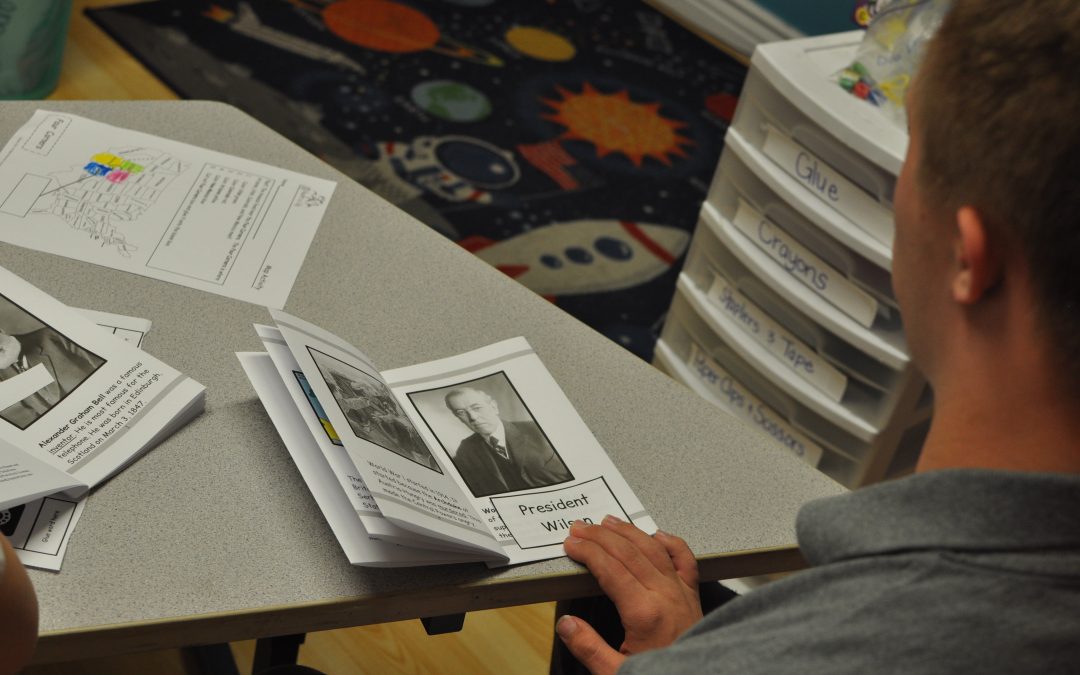Like all students diagnosed with an intellectual disability, Lily runs into a wall with reading comprehension. Once basic reading skills are obtained, which many students with mild and moderate intellectual disabilities can learn, the next step is learning comprehension strategies. This is where it gets hard. The academic standards for this level of learning involve students thinking about their reading, and connecting information from the reading to themselves, something else they have read, or to the world. This is where the gap gets big between general education students and students with an ID.
Comprehension requires students to draw upon their background knowledge and apply it to what is happening in the story to make sense of it. I talked about what this is like in a past post.
Education researchers know what is required for anyone to be able to comprehend reading material. It’s background knowledge. What we already know about a topic is the most significant indicator of how well we are going to comprehend what is being said or written about the topic.
Then, it hit me like a lead brick.
Students with disabilities have two major strikes against them. Not only do they have working memory issues that get in the way of comprehenion, but they are also lacking background knowledge. I mean they are lacking MASSIVE amounts of background knowledge.
The Common Core standards now call for at least 50% nonfiction reading for grade school students. This is because general education students also have a problem with lack of background knowledge. Too much time has been spent on skill- building and not enough time on learning “stuff” on a variety of topics. This has impacted their reading comprehension as well.
So, here is the takeaway:
Students with an ID have the same issue. Too much time has been spent drilling students on isolated skills written in their IEPs, and not enough time spent studying academic topics. They need more non-fiction, and it needs to be high quality nonfiction curriculum that was designed to meet their need to learn as much as possible while addressing standards and IEP goals. They need to move through topics and academic units just like general education students do.
This way they are addressing an important component of comprehension that expands way beyond reading comprehension. It prepares them to better understand everything happening in their world. This background knowledge makes them higher functioning so that they can be as independent as possible.
All of our curriculum addresses this major issue facing students with an ID. A good way to be introduced to our curriculum is by checking out our free units. Students and Teachers LOVE it.





Would love to win!
This sound just like my son, and the struggle is real! I would love to try your curriculum, maybe it will be his saving grace or at least the opening point to unleash his potential!
Hi Isabelle, If you create a VIP account (free) on our web site you have access to 3 free units. That will also put you on our email list so you can be notified of specials. The very best deal is buying a license. If you are interested, message me and I will explain.
Would love to win
Luz, That particular raffle is over, but we may do it again in the next few months. I hope you win, I know you would love it.